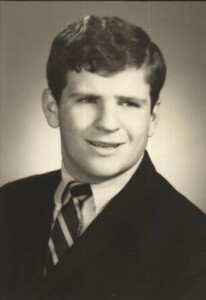 “Clarence . . . Clarence Miller did this to me.” George Wilhelm’s dying declaration to police, February 9, 1976 (T.T. 1528).
“Clarence . . . Clarence Miller did this to me.” George Wilhelm’s dying declaration to police, February 9, 1976 (T.T. 1528).
“. . . Goldblum was not the individual who inflicted the fatal stab wounds on Mr. George Wilhelm.” Dr. Cyril Wecht, Coroner of Allegheny County in letter to Board of Pardons, September 1, 1994; Henry Lee, Ph.D., report dated February 25, 1997.
“This is the one case in 21 years [as a judge] which seriously troubles my conscience about the result.” The Honorable Donald Ziegler as quoted in Michael Bucsko, Judge Haunted by Dying Man’s Last Sentences, Pittsburgh Post-Gazette, February 5, 1995. Reasonable people can argue over the meaning of “injustice” or whether an “injustice” was visited upon Charles “Zeke” Goldblum in this case.
However, there is very little doubt that, in convicting Goldblum of the murder of George Wilhelm, the jury reached a verdict based on incomplete and inaccurate facts.
It would be unfair to blame the jury for their verdict, considering what they had to work with:
- The Commonwealth’s chief witness, Clarence Miller, was a liar and diagnosed confabulator, whose primary motive in testifying was to avoid criminal culpability in the aftermath of being accused of murder by the dying declaration of the murder victim.
- The petitioner, Charles “Zeke” Goldblum, sought acquittal as to all charges and, in doing so, lied to the police, the jury, to his family, and to his trial counsel.
- A police investigation that was sub-standard and woefully incomplete. This was probably due to the fact that both Miller and Goldblum were arrested and charged with the murder within 24 hours of the commission of the murder. Because the police were satisfied that they had solved the murder, they failed to conduct an open-minded, thoughtful, and thorough investigation of these crimes. Consequently, significant evidence was lost and/or destroyed.
- An extremely complicated factual interplay between three distinct criminal transactions which created a natural inclination by the jury to determine guilt or innocence of the three crimes as a package.
- A prosecution which deliberately prevented the jury from hearing testimony from a crucial witness because the prosecutor did not want to give that witness immunity on a $20,000.00 theft charge in order to get to the truth in a complex murder case.
- The highly prejudicial evidence that Goldblum attempted to hire someone to kill Miller while Goldblum was awaiting trial in this case.